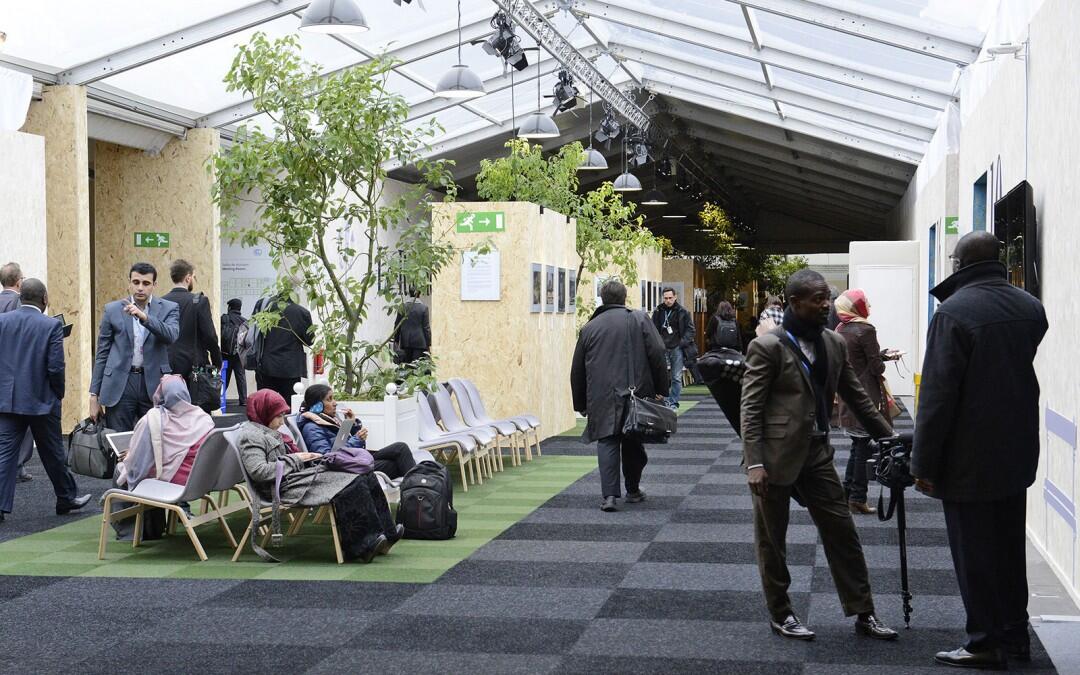Governments and food and agriculture organizations join today at the Lima-Paris Action Agenda Focus on Agriculture to respond to the urgent climate challenges facing agriculture with six cooperative initiatives that will protect the long-term livelihoods of millions of farmer and reduce greenhouse gas emissions.
Agriculture is one of the sectors most seriously affected by extreme climate but it also accounts for 24 % of the greenhouse gas (GHG) emissions which cause climate change.
The initiatives focus on four key areas: soils in agriculture, the livestock sector, food losses and waste, and sustainable production methods and resilience of farmers.
Together, these partnerships will deploy money and know-how across both developed and developing nations to help hard-pressed farmers become key actors in the global drive to achieve a low-carbon, climate-resilient future.
This exceptional half-day reveals the effective and concrete progress that can be made when a wide, international set of stakeholders work together to build resilience and low-carbon systems of production in agricultural and food systems.
At the heart of the Action Agenda, the six major initiatives supporting farmers include:
The “4/1000 Initiative: Soils for Food Security and Climate”
Officially launched today by a hundred partners (developed and developing states, international organizations, private foundations, international funds, NGOs and farmers’ organization) the 4/1000 Initiative aims to protect and increase carbon stocks in soils. Soils can store huge quantities of carbon and contributing to limitation of greenhouse gas concentration in the atmosphere, supplementing the necessary efforts to reduce greenhouse gas emissions globally and generally throughout the economy. The partners decided to reinforce their actions on appropriate soil management, recognizing the importance of soil health for the transition towards productive, highly resilient agriculture. This initiative intends to show that a small increase of 4/1000 per year of the soil carbon stock (agricultural soils, notably grasslands and pastures, and forest soils) is a major leverage in order to improve soil fertility, resilience of farmers and contribute to the long-term objective of keeping the global average temperature increase below 2 degrees.
Life Beef Carbon
Farmers from four European countries are joining forces and taking the lead to reduce the carbon footprint of the livestock sector. Initially launched in October 2015, the “Life Beef Carbon” initiative, inspired by France’s Dairy Carbon Program, aims at promoting innovative livestock farming systems and associated practices to ensure the technical, economic, environmental and social sustainability of beef farms, and thus to reduce the contribution of livestock production to GHG emissions. The initiative aims to reduce the beef carbon footprint by 15% over 10 years in France, Ireland, Italy and Spain.
“Adaptation for Smallholder Agriculture Programme” (ASAP)
Through this initiative, IFAD and its partners commit to investing climate finance in poor smallholder farmers in developing countries to generate multiple benefits. Smallholder farmers are among the best possible clients for climate finance. Such investments can increase agricultural productivity while at the same time restoring and maintaining a resilient natural resource base and reducing agriculture’s carbon footprint. This initiative is being reinforced by 12 additional countries joining the current list of 44 country partners, increasing the total amount of committed ASAP funds up to US$285 million. By 2034, this additional funding will avoid or sequester 80 million tons of GHG emissions (CO2e) and will strengthen the resilience of 8 million smallholders.
15 West-African Countries Transitioning to Agro-ecology
The Promotion of Agro-ecology Transition in West Africa is a regional initiative led by ECOWAS and focused on Africa. It concerns 15 countries, including Burkina Faso, Ghana, and Senegal. The main financial partners include the European Union, the World Bank, and the New Partnership for Africa’s Development (NEPAD) of the African Union. This impact-full initiative delivers both adaptation and emission mitigation benefit. It will allow the adoption of agro-ecological practices by 25 million households by 2025.
The Blue Growth Initiative (BGI)
A multi-partner initiative led by the Food and Agriculture Organization (FAO) that supports climate resilience, food security, poverty alleviation and sustainable management of living aquatic resources in coastal communities, especially in small island developing states. The actions aim at a 10% reduction in carbon emissions from fishery value chains in 10 target countries within 5 years (and 25% within 10 years), and the reduction of overfishing by 20% in the target countries within 5 years (50% within 10 years).
The SAVE FOOD Initiative – (the Global Initiative on Food Loss and Waste Reduction)
This is a unique partnership led by FAO, with over 500 companies and organizations from industry and civil society active in food loss and waste reduction. It aims to drive innovations, promote interdisciplinary dialogue and spark debates to generate solutions across the entire value chain, “from field to fork”. This initiative has recently developed a technical platform, that will be launched in the coming days, to measure and reduce food loss and waste. Altogether, this should allow a major reduction in agriculture emissions, as global food waste and loss account for 3.3Gt of CO2 equivalent per year.











